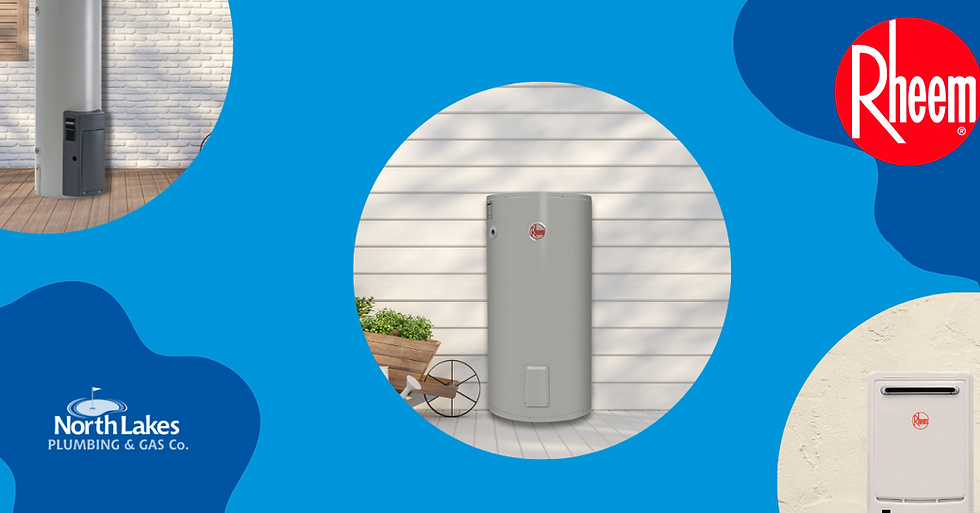Why More Homes are Replacing Gas Hot Water with Electric
- North Lakes Plumbing & Gas Co

- Apr 5, 2024
- 2 min read
As plumbing experts serving the unique needs of Queensland residents, the team at North Lakes Plumbing & Gas Co. understand the importance of balancing comfort, convenience, and cost-effectiveness when it comes to hot water systems. One prevalent concern among
homeowners is the impact of high natural gas (NG) or liquid petroleum gas (LPG)
charges on their energy bills. In response to this challenge, transitioning to electric
hot water systems presents a compelling solution. Let's explore how making this
switch addresses the concerns associated with high gas charges and offers
numerous benefits for Queensland homeowners.

1. Mitigating Rising Gas Costs:
Queensland, like many regions, has witnessed fluctuations in natural gas prices
over recent years. For homeowners relying on gas powered hot water systems,
these fluctuations can lead to unpredictable and often escalating energy bills. By
transitioning to electric hot water systems, homeowners can mitigate the impact of
rising gas costs and gain greater control over their energy expenses.
2. Capitalising on Off-Peak Electricity Tariffs:
One of the key advantages of electric hot water systems is the ability to leverage
off-peak electricity tariffs. Queensland offers discounted electricity rates during off-
peak hours, typically overnight. By installing timers to heat water during these
periods of lower demand, homeowners can take advantage of reduced electricity
rates, effectively lowering their overall energy costs.
3. Reducing Reliance on Fossil Fuels:
Transitioning to electric hot water systems aligns with Queensland's commitment
to reducing reliance on fossil fuels and transitioning to cleaner energy sources.
With advancements in renewable energy technology, such as solar power
integration, electric hot water systems offer a sustainable alternative to gas
powered systems. By reducing reliance on fossil fuels, homeowners can contribute
to a cleaner environment and support Queensland's renewable energy goals.
4. Enhancing Long-Term Cost Savings:
While the upfront cost of transitioning to electric hot water systems may seem
daunting, it's essential to consider the long-term cost savings. Electric systems
typically have lower maintenance costs and longer lifespans compared to gas
powered alternatives. Additionally, by leveraging off-peak electricity tariffs and
optimising energy usage with timers, homeowners can achieve significant cost
savings over the lifespan of the system.

5. Maximising Comfort and Convenience:
Electric hot water systems offer consistent performance and reliable hot water
supply, ensuring comfort and convenience for homeowners. With timers installed,
hot water is readily available at preferred times without the need to manually adjust
settings. This seamless integration enhances overall comfort and simplifies daily
routines, making the transition to electric hot water systems a practical choice for
Queensland households.
In conclusion, replacing existing hot water systems with electric alternatives offers
a viable solution to address concerns related to high gas charges in Queensland.
By capitalising on off-peak electricity tariffs, reducing reliance on fossil fuels, and
maximising long-term cost savings, homeowners can enjoy reliable hot water
supply while reducing their energy expenses. As plumbing professionals, it's our
mission to empower Queensland residents to make informed decisions





Comments